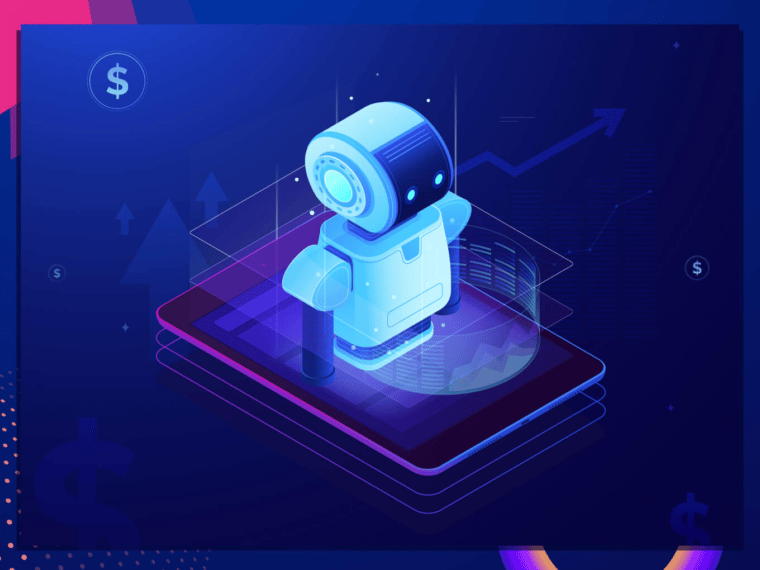
Throughout 2022, artificial intelligence (AI) has consistently proven its value to businesses looking to cut costs, improve efficiency, and reduce staff workloads
As 2023 progresses, these advantages will become more apparent since businesses that want to stay competitive will need AI-powered solutions that can handle complicated problems and repetitive tasks
Given the likelihood that the economy will remain unstable, innovation in the field of AI will be crucial if it is to provide businesses with real savings and free up employees to perform jobs that create value
Throughout 2022, artificial intelligence (AI) has consistently proven its value to businesses looking to cut costs, improve efficiency, and reduce staff workloads. These advantages will become even more apparent as 2023 progresses since businesses that want to stay competitive will need AI-powered solutions that can handle complicated problems as well as repetitive tasks.
By automating tedious, low-value tasks, AI and ML solutions can free up staff from the burden of running day-to-day business operations. With rising labour costs and an impending recession, AI and ML technologies will completely change how business is conducted.
Data protection is one area of a company that can benefit most from AI-powered automation, as it is practically impossible for an IT team to have complete manual oversight due to the volume, quality, and size of data. IT firms will seek autonomous data security solutions in the new year that deliver real cost savings, boost operational effectiveness, and minimise or completely remove human interaction.
Using AI To Automate Data Protection
For companies that wish to properly manage their data while freeing up the time of the IT employees to promote wider company growth, AI-powered data protection is the way of the future. Successful automation can eliminate backup failures, which is increasingly important as IT teams everywhere are under resource pressure.
The current state of data protection is unworkable; organisations shouldn’t anticipate having specialised teams handle backups, SLOs (Service Level Objectives), RPOs (Recovery Point Objective), RTOs (Recovery Time Objective), and meticulously troubleshoot problems. In reality, workloads have become more complex, data growth has accelerated, and the majority of enterprises today use hundreds of enterprise applications. Given the abundance of resources and information, IT teams, particularly backup administrators, are under even more pressure to put a lot of time and energy into data protection activities.
Organisations can release these backup administrators from the data avalanche by implementing AI-enabled technologies, allowing them to concentrate on the business’s overall IT and security strategy. Additionally, by 2023, AI will be able to handle more than just administrative issues. From identifying unusual user behaviour to tracking it within the data itself, AI and ML analytics in cybersecurity can proactively support the cybersecurity posture of the entire organisation, bringing about a radical simplification of operations as well as increased security and cost savings.
Delivering these savings will be especially important in the future since, in light of macroeconomic uncertainty, cost-cutting will be a top board priority. By utilising automation technologies to supplement the IT workforce, automate back-end procedures, and eliminate expensive administrative backlogs, the effective use of AI is one way that contemporary solutions can assist organisations to navigate through a downturn. Additionally, new SaaS-based AI solutions allow businesses to only pay for the services they use, reducing wasteful expenditures and eliminating overhead costs for the entire company.
AI-Powered Metadata
Businesses can greatly profit from AI, particularly in the area of data backup and recovery. Saving money is one advantage, and the ability of AI/capacity MLS to assist in the gathering, processing, and analysis of metadata is another.
In the past, recovering customer data from a breach or data loss was the sole purpose of data protection. The best strategy right now is autonomous data protection enabled by AI and metadata. The hyper-automation that locates bottlenecks, fixes them, and proactively prevents them so that backups simply function is known as autonomous data protection. It is driven by the metadata ecosystem of environmental conditions, resource consumption, and workload change patterns from billions of cloud-based events.
These rich metadata ecosystems may be processed safely using ‘as a service’ solutions like security posture management, ransomware prevention, governance, privacy, and more. These solutions use AI/ML to provide enterprises with ease, security, and cost savings. These ‘as a service’ options will be crucial, especially as ransomware develops into a more sophisticated and inventive threat and as cyber security remains one of any company’s top objectives. In light of this, security will override all other factors in data protection services over the coming year.
Staying Resilient In The New Year
AI tools and systems will continue to be essential for organisations across all sectors in 2023 and beyond. Given the likelihood that the economy will remain unstable into the new year, innovation in the field of artificial intelligence will be crucial if it is to provide businesses with real savings and free up employees to perform jobs that create value.
Businesses can revitalise their data security strategies and eliminate backup failures by applying AI-enabled tools, enabling the company and its data to be robust against upcoming threats.
Update | 28 Feburary, 5:06
The full form of RPO has been updated.































 Ad-lite browsing experience
Ad-lite browsing experience